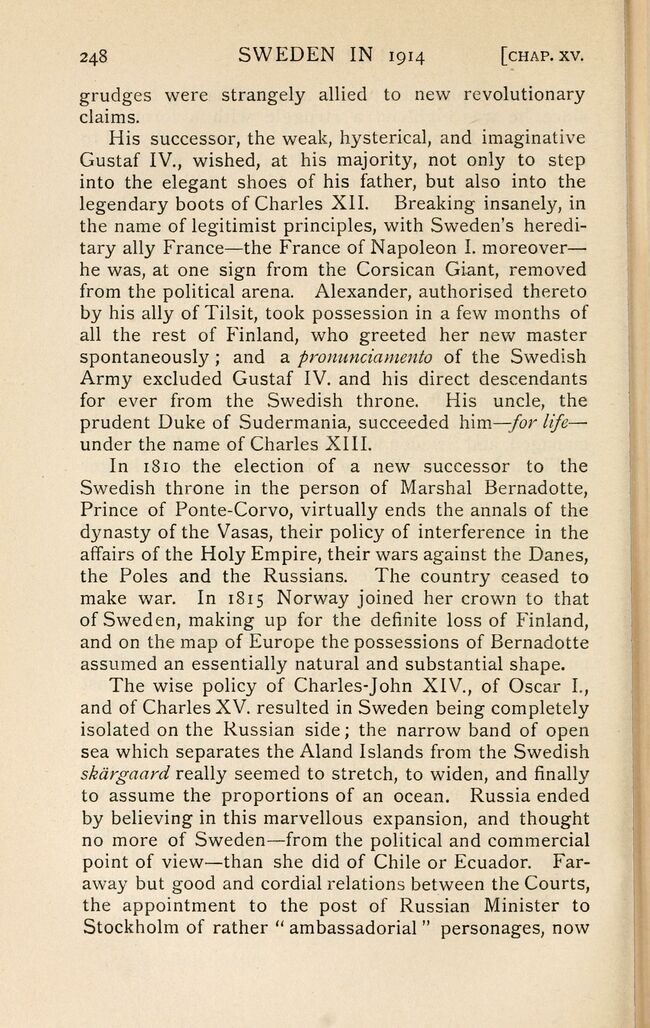
Full resolution (JPEG) - On this page / på denna sida - XV. Sweden in 1914

<< prev. page << föreg. sida << >> nästa sida >> next page >>
Below is the raw OCR text
from the above scanned image.
Do you see an error? Proofread the page now!
Här nedan syns maskintolkade texten från faksimilbilden ovan.
Ser du något fel? Korrekturläs sidan nu!
This page has been proofread at least once.
(diff)
(history)
Denna sida har korrekturlästs minst en gång.
(skillnad)
(historik)
grudges were strangely allied to new revolutionary
claims.
His successor, the weak, hysterical, and imaginative
Gustaf IV., wished, at his majority, not only to step
into the elegant shoes of his father, but also into the
legendary boots of Charles XII. Breaking insanely, in
the name of legitimist principles, with Sweden’s
hereditary ally France—the France of Napoleon I.
moreover—he was, at one sign from the Corsican Giant, removed
from the political arena. Alexander, authorised thereto
by his ally of Tilsit, took possession in a few months of
all the rest of Finland, who greeted her new master
spontaneously; and a pronunciamento of the Swedish
Army excluded Gustaf IV. and his direct descendants
for ever from the Swedish throne. His uncle, the
prudent Duke of Sudermania, succeeded him—for
life—under the name of Charles XIII.
In 1810 the election of a new successor to the
Swedish throne in the person of Marshal Bernadotte,
Prince of Ponte-Corvo, virtually ends the annals of the
dynasty of the Vasas, their policy of interference in the
affairs of the Holy Empire, their wars against the Danes,
the Poles and the Russians. The country ceased to
make war. In 1815 Norway joined her crown to that
of Sweden, making up for the definite loss of Finland,
and on the map of Europe the possessions of Bernadotte
assumed an essentially natural and substantial shape.
The wise policy of Charles-John XIV., of Oscar I.,
and of Charles XV. resulted in Sweden being completely
isolated on the Russian side; the narrow band of open
sea which separates the Aland Islands from the Swedish
skärgaard really seemed to stretch, to widen, and finally
to assume the proportions of an ocean. Russia ended
by believing in this marvellous expansion, and thought
no more of Sweden—from the political and commercial
point of view—than she did of Chile or Ecuador.
Faraway but good and cordial relations between the Courts,
the appointment to the post of Russian Minister to
Stockholm of rather “ambassadorial” personages, now
<< prev. page << föreg. sida << >> nästa sida >> next page >>